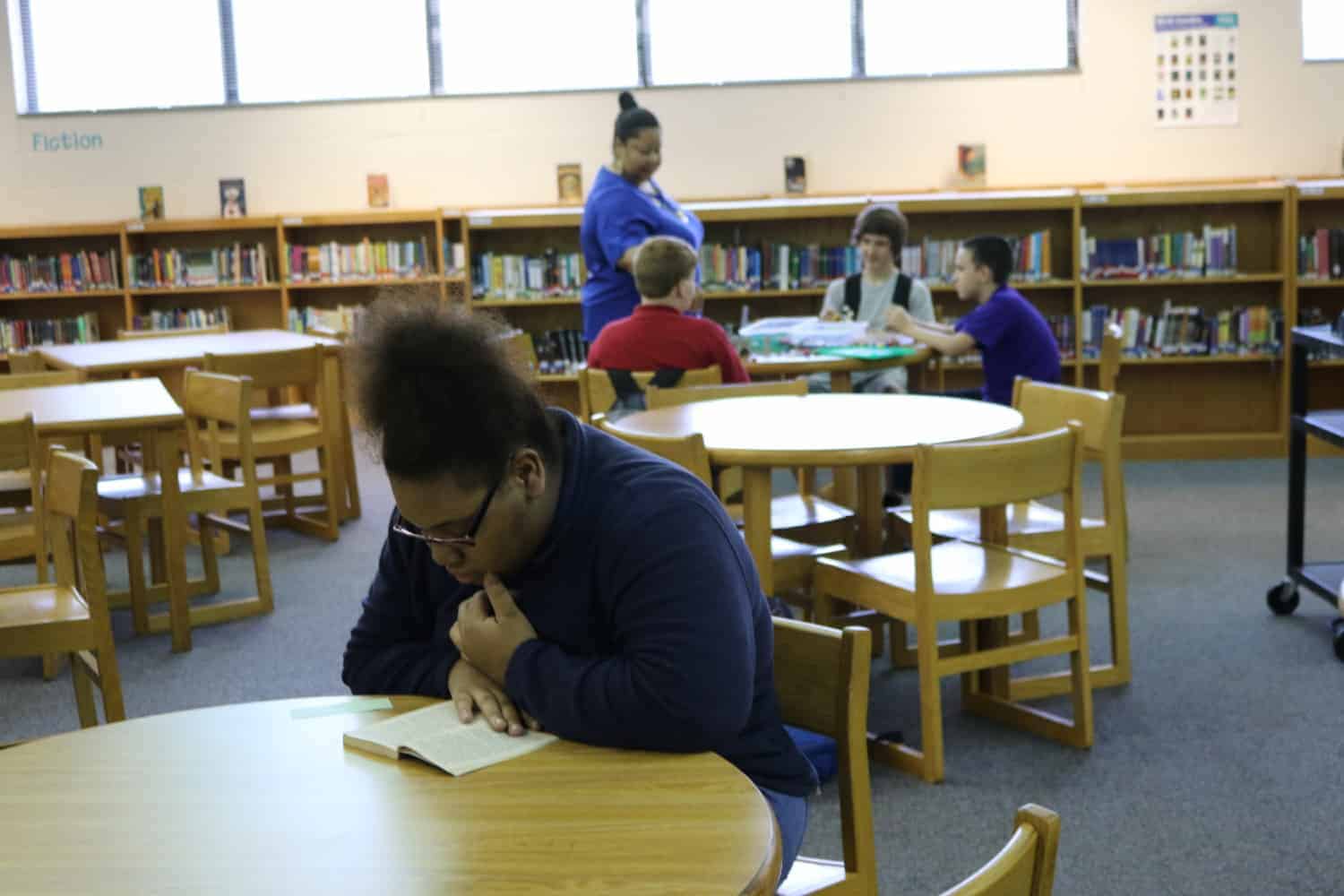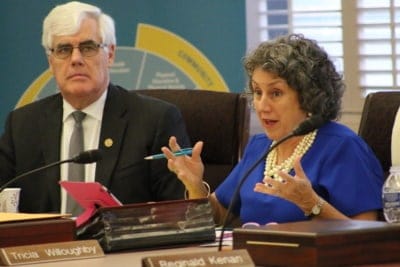College Advising Corps took an untraditional route when they discovered parent engagement was the biggest influencer on students’ postsecondary education decisions: they started texting parents.
Information on financial aid and the organization’s strategic advising process was sent to all the parents in Atlanta’s public school district. Nicole Hurd, founder and CEO of the organization that focuses on college access for low-income and first-generation students, said they saw an increase in FASFA applications and improved communication between parents and advisors, who are themselves recent college graduates.
“We want to create new knowledge,” Hurd said of their nationwide strategy. “We want to innovate and experiment and figure out what works.” The organization is building on their efforts to improve North Carolina students’ postsecondary successes.
The John M. Belk Endowment gave the North Carolina-based organization $10 million in July as part of a strategy to raise the percentage of North Carolinians with some form of postsecondary education to 60 percent by 2025. According to research by Stanford University, high schools have seen an average increase in college enrollment of five to six percent after two years of working with the program’s advisors.
There are currently 106 in-state advisors, who graduated from either N.C. State University, Duke University, UNC-Chapel Hill, or Davidson College, serving around 38,000 students. Hurd said the funds from the recent grant will be used for research on the education and employment needs specific to different regions of North Carolina.
“What is it that we need so that we can have students not only be ready for their futures but ready for their futures in North Carolina?” Hurd said. Encouraging advisors to work hand-in-hand with the universities in the areas they’re serving, she said, will help get as many students as possible “to and through” college.
But Hurd said it is not all about four-year universities. In a time when many state and national education leaders are pushing for a change in the perception of postsecondary opportunities outside of the traditional college setting, Hurd said the variety of options is something the program embraces.
“There’s also students who need to be connected to a great vocational program, or a program in a community college,” she said. “(We need) acknowledgement that the higher-ed space is very diverse. We need to hold it up and celebrate that diversity and understand that it’s not just one path that every student needs to navigate.”
To guide students on which path would be best-suited for them, Hurd said advisors are trained to use both “match” and “fit” advising.
Match advising, Hurd said, is focused on academics. “(It’s) finding the right school for your academic accomplishments, that has the program that you need to become the journalist, or the professor, or whatever your dreams and hopes are,” she said.
Fit advising, on the other hand, takes into account students’ financial, social, and emotional needs. Hurd said advisors ask questions like: Do you need to be somewhere closer to home? Do you need to work? Do you need to be at a smaller or larger campus?
“It’s a really nuanced advising,” Hurd said. “There’s three buckets that are critical: an academic bucket, a financial bucket, and a social bucket. We want all those things to align.”
Although raising success for low-income and first-generation students is at the core of the organization, Hurd said advisors take a “whole-school approach.” Advisors are there to help every student. She said the “magic of the program” is the connection recent college graduates can make with high schoolers.
“It’s not lost on me that the beauty of this work is having young people empower other young people to make really good decisions about their future,” Hurd said.
Hurd is aware that there are already counselors in schools, many of whom have much more on their plates than is reasonable or feasible. In 2013-14, there were 379 students for every counselor in North Carolina, according to data from the American School Counselor Association, which recommends a ratio of 250:1.
College Advising Corps is working to experiment with what works and, with the help of their 24 partner universities, share research with the broader counseling community.
A huge part of the four to six weeks of training College Advising Corps advisors receive the summer after graduation, Hurd said, is thoughtful integration into a school.
“This goes back to the core values of grace and humility,” Hurd said. “This is not about us. The only way it’s going to work (is if) our schools are willing to hold hands with us in a powerful way. It’s about sitting down with the counseling team or the principal or the school leadership and saying, ‘This is where we are in terms of our college-going rate or our FASFA-completion rate…Where would we like to go together?'”
For Hurd, it all started sitting in a meeting at the University of Virginia in 2005. She was working with scholarships and fellowships for college students, but the meeting was about increasing college access for low-income high schoolers.
She knew college-age students were looking for experiences right out of school — there were always more applicants than slots for programs like Teach for America and the Peace Corps.
“If we can send our best and brightest to these places,” Hurd said she thought, surely their skills could tackle college access.
For advisors, the position only lasts two years. Hurd said this is intentional.
“If they get bit by a counseling bug, we want them to go get counseling degrees,” she said. “This is about public service and an early-career, incredibly exciting and empowering position. It’s also a first step on what we hope is a much more impactful journey.”



